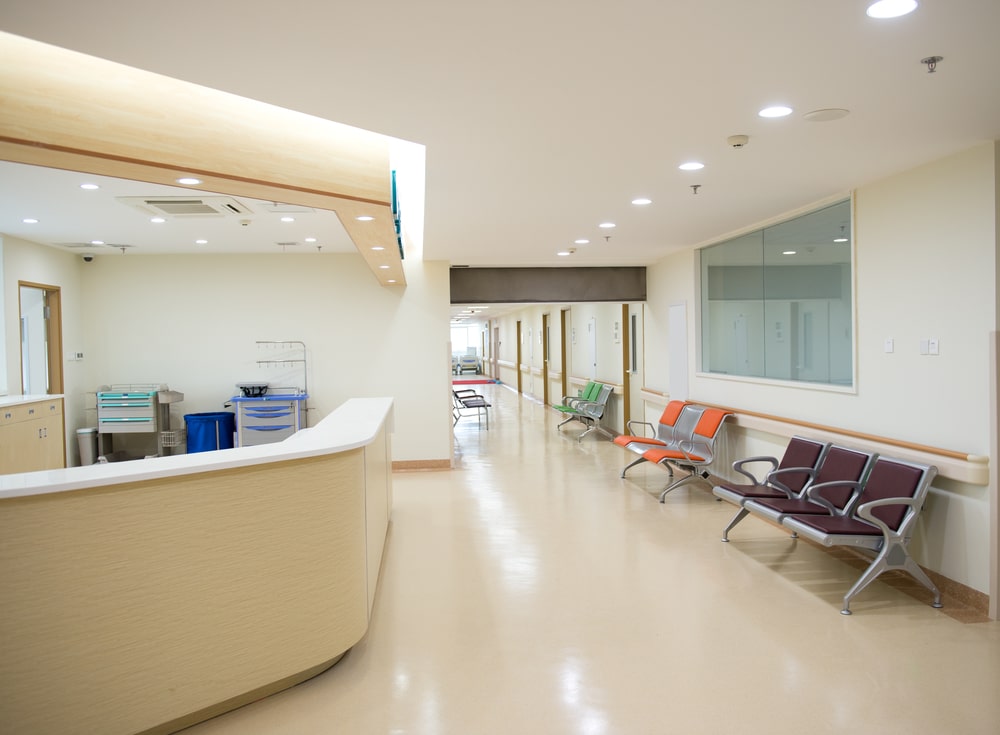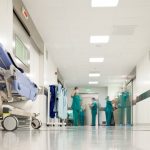Sector - Health
Health Secretary announces £2.7Bn for new hospitals
8 Oct 19

The Health and Social Care Secretary, Matt Hancock, announced a new programme for the construction of at least six new hospitals and improvements to over 20 more at the Conservative Party Conference in Manchester last week.
This new programme, named the Health Infrastructure Plan, will allocated £2.8Bn worth of investment to six hospital trusts, for the express purpose of constructing new hospitals, as well as a further 21 trusts, for the simple purpose of refurbishments and upgrades.
Under the Health Infrastructure Plan the six hospital trusts building new hospitals, named as Barts Health Trust, Epsom and St Helier Trust, West Hertfordshire Trust, Princess Alexandra Hospital Trust, University Hospitals of Leicester Trust, and Leeds Teaching Hospitals Trust, will receive £2.7Bn for their new hospitals.
Whereas the 21 other upgrade and improvement schemes will receive just £100M in funding for their respective projects, some of the scheme scheduled to receive this smaller amount of funding include Addenbrookes hospital in Cambridge, Queen’s Medical Centre in Nottingham, and North Manchester General Hospital.
Overall, the Conservatives’ new plan sets out to build new hospitals, modernise the UK’s primary care estate, invest in new diagnostics and technology, and help eradicate critical safety issues in the NHS estate.
The aim of the programme is also to deliver the most demanding projects, the construction of the new hospitals specifically, by 2025 while the less demanding improvement work should be completed some time between 2025 and 2030.
This new plan, and new investment, follows the Conservative Government’s recent pledge to provide an extra £33.9Bn in funding per year to the NHS by 2023 to 2024, in addition to other pledges of £1.8Bn in capital funding for the express purpose of hospital upgrades and other critical infrastructure works for the NHS.
And finally, the government is also scheduled to announce a sum of £200M on Friday for the purchase of diagnostic machines which are hoped to improve the earlier diagnosis of terminal illnesses such as cancer.
If you would like to read more articles like this then please click here.
More Health News
- RAAC removal progress
26 Sep 25
The government has announced significant progress in its RAAC programme.
- Modular frameworks create a monumental opportunity for UK public sector construction
5 Sep 25
Modular Buildings 3, allows public sector organisations to access a verified list of modular construction
- Bouygues UK appointed for children’s hospital in Cambridge
21 Aug 25
Bouygues UK has been awarded the contract for Cambridge Children's Hospital,
-
Sector Press Releases
- ALS Environmental extension to scope granted by UKAS
Now accredited for Pseudomonas aeruginosa and TVC testing in endoscopy and dialysis waters.
- FP McCann’s shaft segments used in Belgian hospital waste water scheme
FP McCann’s shaft segments are factory-fitted with EPDM rubber gaskets, providing water-tight seal upon construction.
- Bryland Fire Protection achieve world’s first in fire suppression systems
Bryland are partnering with innovative, pioneering suppliers to continue to offer advanced and effective solutions.
- Is your project compliant?
Safer Sphere has an array of experience delivering CDM support in accordance with CDM regulations.
- Outsourced safety support at a fraction of the cost
Safer Sphere can develop a bespoke subscription to suit your requirements.
- London introduces new tax to cut vehicle pollution
A T-charge will work alongside the existing congestion charge, affecting older petrol and diesel cars.
-
Sector Case Studies
- Building Better Support: Mental Health in the Construction Industry
Phantom highlights the need for greater awareness around the topic of mental health.
- Newcastle Freeman Hospital
A long-term data centre strategy was needed to carry Freeman Hospital through the next decade.
- Royal College of Surgeons
A robust data centre strategy was needed to safeguard their reputation and ensure business continuity.
- Health Authority Project
Procomm supplied 54 bays of CTX modules to form a health centre.
- Making safety more than just a buzzword for your organisation
NordSafety look at safety concepts in two companies and discuss their outlook and results.
- Central Manchester University Hospital
Safer Sphere provided Health and Safety management to the challenging and fast moving construction projects.





